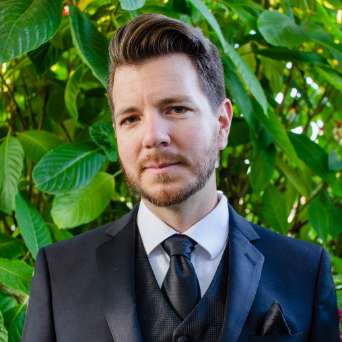The composer John Adams once remarked that he wished Beethoven’s Ninth Symphony could be put in a time capsule, not to be heard from until a later date. The piece is such a part of our artistic and popular culture that approaching the piece with fresh ears is virtually impossible. In “Immortal Beethoven,” a series of concerts dedicated to the great composer’s music, all nine of his symphonies are performed in a staggering four day span. As he has in the past with such ambitious projects, Music Director Gustavo Dudamel summoned reinforcements: the Simón Bolívar Symphony Orchestra of Venezuela. After alternating concert performances, both organizations combined for Beethoven’s crowning achievement, the Ninth Symphony, making for an intriguing dynamic throughout the evening.
Stand partners were mostly mixed with LA Phil players paired with Bolívar players. This led to a fun atmosphere of teamwork and friendly competition while also resulting in a powerful sound, raw and exhilarating. As is expected at this point, Dudamel dove in with his customary exuberance. Conducting from memory, the Venezuelan gestured with broad strokes, painting long phrases that sought the ensuing ones by way of consistently brisk tempos.
The downside was that the sound was often unwieldy. Dudamel’s Beethoven was not only aggressive, it was at times abrasive. The first three movements offered plenty of excitement and excellent playing, particularly in the Scherzo, with a finely judged pace and jovial mood, but there was a lack of contrast. Even when the orchestration was sparse, Dudamel’s reading was as if Beethoven never wrote a dynamic below mezzo-forte in the first three movements. It wasn’t until the “Ode to Joy” theme appears in the lower strings that there was an excited hush produced by this band. Exciting as it was, there seemed to be missed opportunities for color up until that point, particularly in the Adagio third movement which began lyrically enough but lost momentum and wonder at the brass fanfares.
But if any piece lends itself to ending on a high note, it’s Beethoven’s Ninth. In the final movement, Dudamel’s forces were breathtakingly accurate and polished, producing splendid lines that soared through the larger textures with ease. Dudamel also seemed to have a keener sense of anticipation and drama, lingering in the pauses for what seemed like eternities and then catapulting forward with magnificent effect. And it certainly didn’t hurt matters that the vocal forces at his disposal were exceptional.
Solomon Howard’s rattling bass was vibrant and poured through the hall with ease. Soprano Mariana Ortiz was equally thrilling, soaring above the ensemble, but also singing with an impressive musical awareness. Joshua Guerrero’s tenor was lightly heroic and J’nai Bridges filled out the quartet with a rich mezzo sound in a part that often gets lost. Grant Gershon’s Los Angeles Master Chorale sang with a splendid balance of power and beauty, exploring the dramatic colors of Beethoven’s chorale with unwavering vocal assuredness and impeccable diction.
In an inspired touch, the quartet was seated at the front of the choir loft, surrounded by the choristers. Like the orchestra onstage, who hugged and shook hands with their stand partners before and after, it was emblematic of the true spirit of collaboration that Dudamel has brought to this ambitious project. And when they were at their best, the forces managed a stirring reading of Beethoven’s masterpiece that made its timeless message of brotherhood new once again—no time capsule required.


